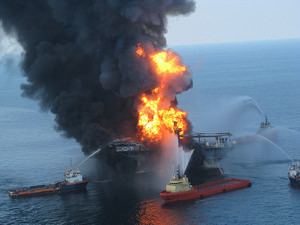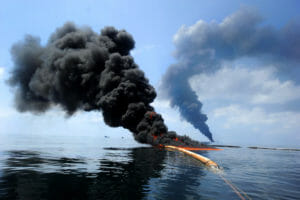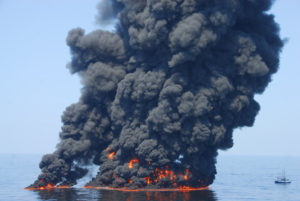The Need to Punish Corporate Criminals
Halliburton's recent "punishment" after admitting that it destroyed evidence related to the 2010 BP oil spill is the very reason The Hill's Ronald Goldfarb says that the "legal fiction that corporations are entities that are distinct from the parties running them" makes for terrible public policy.
Halliburton was recently fined $200,000 and given three years’ probation after its admission that it destroyed evidence related to the 2010 BP oil spill. And that soft “punishment” the company received is the very reason The Hill’s Ronald Goldfarb says that the “legal fiction that corporations are entities that are distinct from the parties running them” makes for terrible public policy.
Your support matters…Ronald Goldfarb via The Hill:
The Washington Post, Slate and others have reported that Halliburton executives destroyed the results of internal tests affecting its level of responsibility for the disastrous Gulf of Mexico oil spill. They were not prosecuted. What were their salaries? Bonuses? In understated language, media revealed that the corporate fine was “unlikely to make a noticeable mark in its balance sheet,” though its admissions should have an effect on its responsibilities in pending civil suits pertaining to the same events.
….My now-deceased father used to lament that if a small debtor owed a small amount to a banker or creditor, he’d be hammered, while a tycoon who owed zillions usually could work out some settlement. Better to owe a lot, he’d posit, than a little.
The same thought applies to criminal responsibility. If we are ever to deter serious, far-flung criminal behavior by corporations, the guilty officials ought to face criminal prosecution.
Independent journalism is under threat and overshadowed by heavily funded mainstream media.
You can help level the playing field. Become a member.
Your tax-deductible contribution keeps us digging beneath the headlines to give you thought-provoking, investigative reporting and analysis that unearths what's really happening- without compromise.
Give today to support our courageous, independent journalists.





You need to be a supporter to comment.
There are currently no responses to this article.
Be the first to respond.